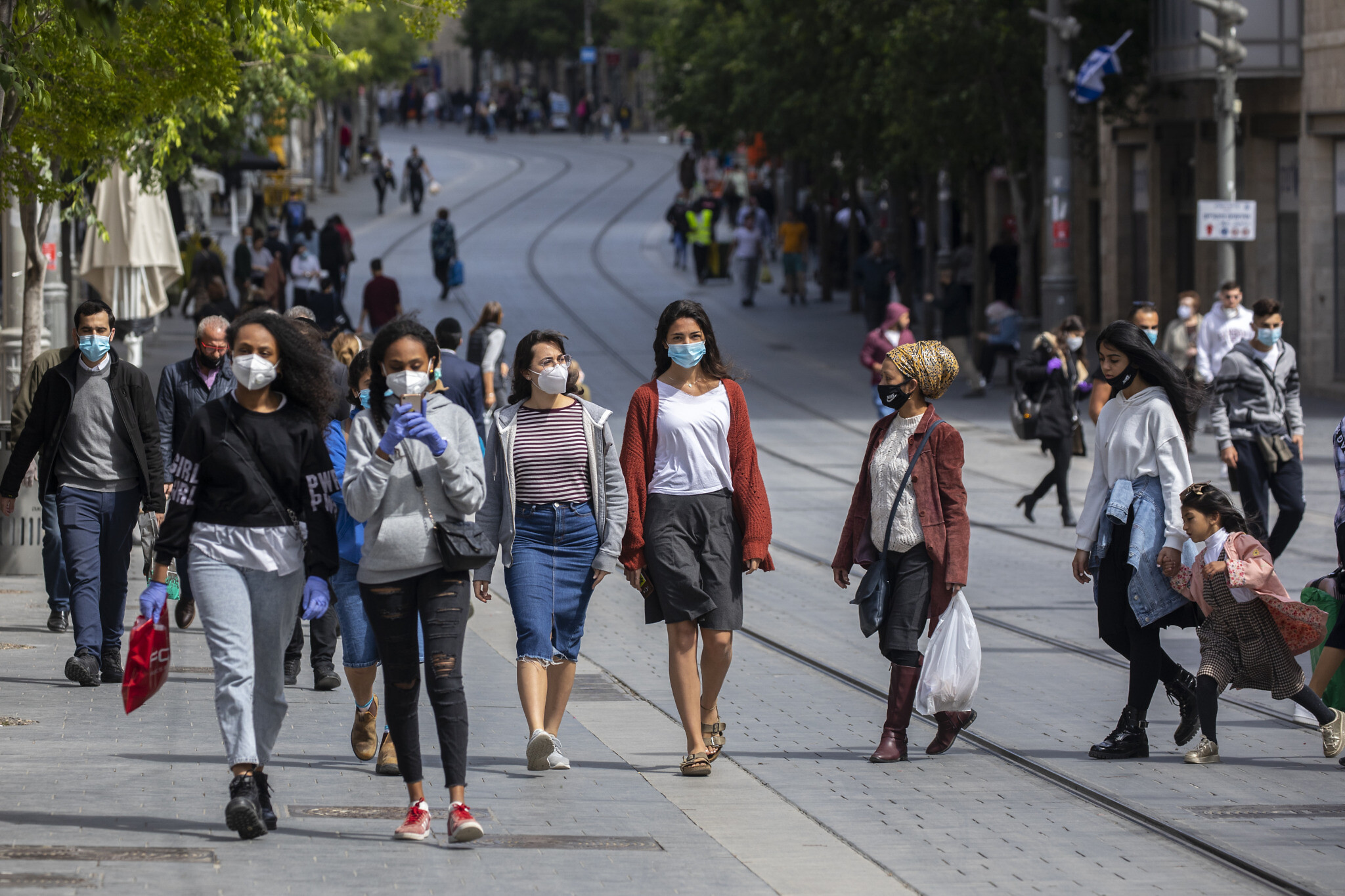Health Ministry figures continue to point to a country rapidly recovering from the COVID-19 pandemic; one new death announced, bringing toll to 240
Israel’s weekly confirmed coronavirus cases have dipped below 500 for the first time since the outbreak gained steam in the country, according to Health Ministry data published Thursday night, underlining the swift slide in new infections as the nation takes steps toward reopening.
One new death was confirmed, bringing the toll to 240.
The total number of confirmed infections stood Thursday at 16,381, with the Health Ministry reporting 42 new infections over the previous 24 hours.
A week earlier, on the evening of April 30, the number had been 15,946, meaning just 435 cases were added in seven days.
According to the ministry, 83 people were in serious condition, 68 of whom were on ventilators. Another 56 Israelis were in moderate condition and the rest had mild symptoms.
So far, 10,873 people in the country have recovered from COVID-19, according to the figures.
According to the ministry, 42 new cases were confirmed in the last day.
However, city by city data reported by the ministry showed 51 new cases over the past day in just a handful of cities, with potentially dozens more untallied, pointing to the unreliability of the ministry’s reporting.
Five of those new cases were in Tel Aviv, while Jerusalem saw 15 new infections and Bnei Brak 14 cases, according to the ministry.
A ministry spokesperson has declined to answer questions about the fuzzy data, which has been a consistent feature of the government’s twice-daily reports.
Earlier in the day, the number of people who have recovered from coronavirus became more than double those who are currently infected with the virus, according to the ministry.
In recent days, Israel’s infection rate has dropped off significantly, with the number of new cases over 24-hour periods consistently measuring in the dozens.
Over the weekend Channel 12 reported that 80 percent of Israeli towns and villages had reported no new COVID-19 cases for several days.
Hospitals in Jerusalem and Ashdod have begun closing coronavirus wards as the number of patients has declined.
With the number of new infections dropping, the government has increasingly rolled back restrictions meant to curb the outbreak, and on Monday canceled the 100-meter limit on Israelis traveling from their homes for activities deemed nonessential, as well as restrictions preventing people from visiting with family.
Malls, outdoor markets and gyms reopened Thursday morning after over six weeks of closure, with shoppers reported at shopping centers throughout the country.
Prime Minister Benjamin Netanyahu said that all lockdown restrictions could be removed by the middle of June.
He warned, though, that Israel could have to reassess enforcing social distancing measures if there are more than 100 new coronavirus cases a day, a doubling of cases within 10 days, or over 250 people with serious symptoms in hospitals.
Israel’s National Emergency Authority fears a second wave of coronavirus infections and is calling on the government to use the relative lull in cases to prepare hospitals for a substantial increase in respiratory ventilation and treatment capacities.
According to the Kan public broadcaster, the authority has prepared a model that forecasts a second wave of infections at around the time of the Jewish new year, which this year falls in mid-September.
According to the forecast, the number of cases could be at least twice as bad, reaching tens of thousands, with thousands hospitalized and deaths estimated between several hundred and the low thousands.
(Times of Israel)
